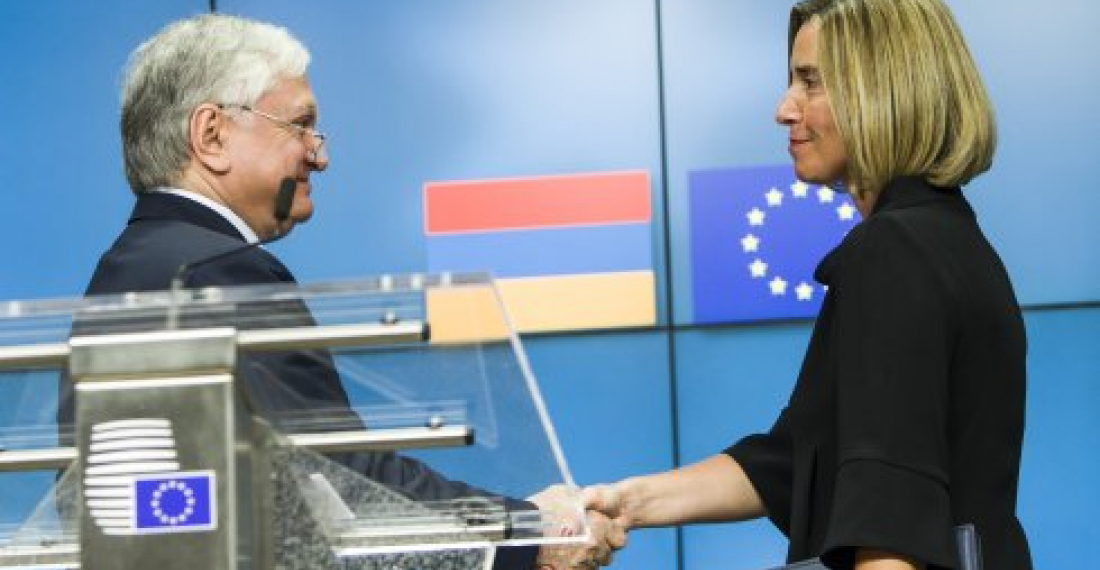The European Union (EU) and the Republic of Armenia successfully held their seventeenth Cooperation Council on 23 May 2017 in Brussels. A statement published on the website of the European External Action Service (EEAS) stated:
The EU and Armenia welcomed the end of the negotiations on the recently initialled EU-Armenia comprehensive and enhanced partnership agreement and called for its swift conclusion.
The Cooperation Council also welcomed the launch of negotiations on a comprehensive EU-Armenia air transport agreement and encouraged further cooperation in all possible sectors.
Both sides looked forward to the early adoption of the joint partnership priorities, as these will have a key role in shaping the EU assistance to Armenia in the next programming cycle (single support framework 2017-2020).
The Cooperation Council reviewed recent political, economic and social reforms in Armenia. The EU took note of progress achieved in implementing these reforms and of Armenia's commitment to continue on this positive trajectory. The EU encouraged Armenia to accelerate reforms in specific areas.
The EU recalled that the shortcomings observed during the recent parliamentary elections needed to be properly addressed. It encouraged an impartial, credible and effective investigation of all alleged human rights violations, including the reported misconduct by the police during the 2016 "Erebuni crisis". The EU also called on Armenia to ensure a fair trial for all.
The EU underlined the importance for Armenia to tackle problems in the justice sector and to counter discrimination on all grounds, to speedily adopt and implement legislation against discrimination and against domestic violence. A continued concerted fight against corruption and strong support for the rule of law is essential.
The EU expressed appreciation for Armenia's participation in the Eastern Partnership framework, whose inclusiveness is complementary to the more differentiated and tailored bilateral relations. The EU is looking forward to Armenia's proactive and constructive stance in preparation for the upcoming Eastern Partnership foreign ministers meeting in Luxembourg on 19 June and Summit in Brussels, on 24 November 2017. The next Summit will focus on tangible benefits of the Eastern Partnership for citizens both in the EU and in the Eastern Partnership partner countries.
The Cooperation Council addressed also regional issues of common interest, and the prospects for the resolution of the Nagorno-Karabakh conflict.
The Cooperation Council was chaired by the EU High Representative for Foreign Affairs and Security Policy, Federica Mogherini. The Armenian delegation was led by Edward Nalbandian, Minister of Foreign Affairs of Armenia.
commonspace.eu with the press service of the European External Action Service
photo: Eduard Nalbandian and Federica Morgherini in brussels on 23 May 2017 (picture courtesy of the press service of the EEAS)







